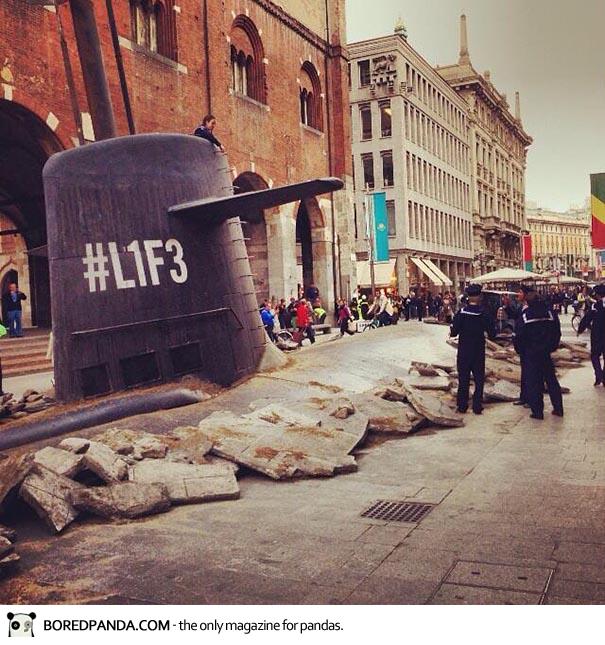Monthly Archives: October 2013
Google Hummingbird – the new search algorithm
As the guest speakers from 6S Marketing brought this topic to our class earlier this month, I was convinced that this is worth more researching and thinking.
Google announced a major algorithm update called “Hummingbird” that would affect 90% of all searches to mark its 15th birthday on September 26th, 2013. Google says that the name comes from the updates “being precise and fast,” as noted in its announcement about the new algorithm.
Fact: What’s a “search algorithm?”
That’s a technical term for what you can think of as a recipe that Google uses to sort through the billions of web pages and other information it has, in order to return what it believes are the best answers.
Conversational search
The biggest change that Hummingbird has brought around is offering direct answers to search questions. This is called “conversational search.” Unlike previous update like Caffeine, which targeted improved indexing of websites, Hummingbird is focused on ranking search information based on intelligent understanding of search queries.
Here is an example of how Hummingbird works:
“What’s the closest place to buy the iPhone 5s to my home?” A traditional search engine might focus on finding matches for words — finding a page that says “buy” and “iPhone 5s,” for instance. Hummingbird should better focus on the meaning behind the words. It may better understand the actual location of your home, if you’ve shared that with Google. It might understand that “place” means you want a brick-and-mortar store. It might get that “iPhone 5s” is a particular type of electronic device carried by certain stores. Knowing all these meanings may help Google go beyond just finding pages with matching words.
In particular, Google said that Hummingbird is paying more attention to each word in a query, ensuring that the whole query — the whole sentence or conversation or meaning — is taken into account, rather than particular words. The goal is that pages matching the meaning do better, rather than pages matching just a few words.
A huge submarine bursts through the streets of Milan
“This morning, Milan awoke to find something a little strange. Just off of Via dei Mercanti, near the heart of the old city, a submarine has apparently pushed its way through the paving stones and damaged a nearby car.”
Read more: http://www.businessinsider.com/submarine-appears-on-milan-street-2013-10#ixzz2hpWwd8Ib
I was shocked when I saw these pictures on the Internet! I mean, who has ever heard of a submarine breaking through the pavement in the heart of Milan? I can even see the famous Milan Cathedral in the background of the picture. Some bystanders guessed that there might be a secret ocean underneath the city of Milan.
Here is the original footage of the scene: watch?v=NFgQjTqKfOQ
The video received more than half a million views in less than two weeks. Well, never underestimate the power of social media. A few local tweets with #L1F3 (the name of the submarine) soon made this incident viral and far reaching. It was soon understood that the scene was created by an Italian insurance company, Europ Assistance Italia, for its “Protect Your Life” campaign. The carefully executed stunt unfolded on October 1st was completed with a live reenactment meant to reinforce the idea of safeguarding yourself and your possessions against unforeseen events.
It is too soon to tell how much this campaign directly contributes to the sales of the insurance company, but the shock factor did make this local marketing scheme global. Who can say that this is not genius?
As I further looked into this stunt, the insurance company even created a website to back this campaign up. http://www.protectyourlife.it/
China lifts Facebook ban a bit
According to the South China Morning Post, the Chinese government has decided to lift a ban on foreign websites deemed politically sensitive, albeit only within the newly developed Shanghai Free Trade Zone.
When I first saw this news, I felt rather excited. Growing up in Shanghai, I always paid close attention to the current events in my hometown. The Free Trade Zone launched in September is designed as a testing ground for a number of economic reforms. The Free Trade Zone will also be the first area on mainland China to allow access to politically sensitive websites (such as Facebook, Twitter, and the New York Times) that were previously blocked by filters. These filters are casually referred to as the Great Firewall of China.
Although it only gives the newly developed 17 square mile Shanghai Free Trade Zone access to Facebook, this could have a bigger meaning for China, the country with the largest number of Internet users (513 million).
Facebook was banned in China since 2009 onward due to several members of the minority Uighur group that used the social media site to organize protests against the government. And this is the first time that the Chinese government has loosened their control over foreign social media websites like Facebook and Twitter. This could be a signal that China is more open to the politically sensitive websites. Could the similar policies apply to other cities in China?
This latest development lets Facebook and Twitter get their feet in the door of the most populous and fastest-growing Internet community in the world. Competition with other government approved social media sites, including Renren and Sina Weibo, is undeniably fierce. How will Facebook compete with these established Chinese social media platforms with their large online communities? This will be Facebook and Twitter’s upcoming obstacle as they decide to expand their strategies in China.
Source: http://money.cnn.com/2013/09/24/technology/china-facebook/index.html






